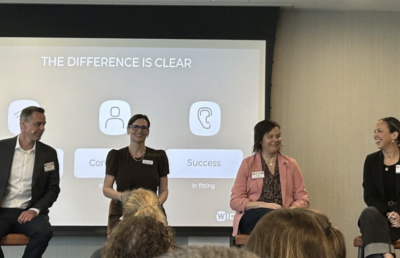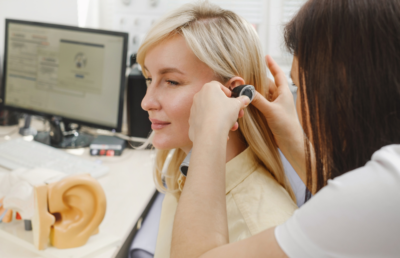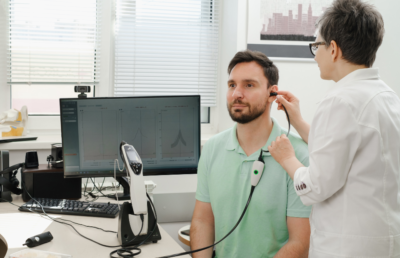Is hearing health a quality of life issue, or a fundamental health issue? For a long time, hearing health has been thought of by the public as a “nice to have” rather than a “must have”. Now, a series of studies are showing that hearing health affects more than just being able to carry on conversations—it can fundamentally impact your physical and mental health. In this post, we’ll go over some of the latest research in this important area.
This May, two studies in JAMA Otolaryngology–Head & Neck Surgery found separate health issues that are correlated with hearing loss. The first study found a correlation between hearing loss and heart health—75% of people ages 70 or older with heart failure also had hearing loss! The second study, which was actually a meta study of 36 separate hearing studies found that hearing loss was significantly associated with a decline in all areas of thinking skills and with developing dementia.
All of us are scared of Alzheimer’s disease and losing their mental acuity as we get older. Guess what? Hearing loss, in combination with other factors, is an early predictor of Alzheimer’s and dementia, but tackling hearing loss as soon as it becomes apparent can instead help to slow mental decline.
Depression and mental health has been in the news more than usual lately, and we’re not surprised to find out that hearing loss could play a part in these conditions as well. As people get older, experiencing hearing loss can add to the feeling of separation they feel from their peers. One recent study found that elders with hearing loss have more than twice the level of depression as compared to their peers who don’t suffer from hearing loss (11% of the population vs. 5%). Another study found not only a link to depression, but also other mental disorders like anxiety and paranoia.
Finally, treating hearing loss can also help you avoid the single biggest cause of accidental deaths over the age of 65 — accidental falls. Healthy hearing gives you improved awareness of what’s going on around you. One study coming out of Johns Hopkins University found that even mild hearing loss can triple the risk of accidental falls.
With this extensive list of potential health problems, a hearing exam and wearing some hearing aids, which is considered to be an inconvenience by some, begins to pale in comparison with the alternatives. As a matter of fact, in conjunction with other lifestyle choices like healthy diet and exercise, addressing your hearing health head-on may be one of the easiest things you can do to improve quality of life and your overall level of health.
Dr. Marie Vetter-Toalson Au.D. is the owner of Chicago Hearing Services and a Doctor of Audiology dedicated to empowering her patients and the public with greater knowledge and education around hearing health.





